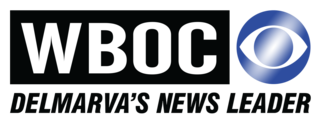
DISH Network Corporation is an American television provider and the owner of the direct-broadcast satellite provider Dish, commonly known as Dish Network, and the over-the-top IPTV service, Sling TV. Additionally, Dish offers mobile wireless service, Dish Wireless. On July 1, 2020, Dish acquired prepaid service Boost Mobile and added postpaid service Boost Infinite on December 7, 2022. Based in unincorporated Douglas County, Colorado, the company has approximately 16,000 employees.
PrimeStar was an American direct broadcast satellite broadcasting company formed in 1993 by seven cable television companies including Comcast Corp. and TCI Communications Corp. PrimeStar was the first medium-powered DBS system in the United States but slowly declined in popularity with the arrival of DirecTV in 1994 and Dish Network in 1996.

Bell Satellite TV is the division of BCE Inc. that provides satellite television service across Canada. It launched on September 10, 1997. As of April 2017, Bell Satellite TV provides over 700 channels to over 1 million subscribers. Its major competitors include satellite service Shaw Direct, as well as various cable and communications companies across Canada.
Spaceway-1 was a part of AT&T's constellation of direct broadcast satellites.
SES Americom was a major commercial satellite operator of North American geosynchronous satellites based in the United States. The company started as RCA Americom in 1975 before being bought by General Electric in 1986 and then later acquired by SES S.A. in 2001. In September 2009, SES Americom and SES New Skies merged into SES World Skies.

The Nimiq satellites are a Canadian fleet of geostationary telecommunications satellites owned by Telesat and used by satellite television providers including Bell Satellite TV and EchoStar. 'Nimiq' is an Inuit word used for an object or a force which binds things together. A contest in 1998 was held to choose the name of these satellites. The contest drew over 36,000 entries. Sheila Rogers, a physiotherapist from Nepean, Ontario, submitted the winning name.
Sirius was a constellation of communications satellites operated at 5.0° East in geostationary orbit (GEO) by NSAB. They carried digital satellite television to the countries of Scandinavia, Baltic states, Eastern Europe and Africa, including the Viasat pay TV system, along with several pay TV packages for Eastern Europe, the TopTV package for Africa, a number of Ukrainian channels and the national Latvian and Lithuanian channel service free-to-air.
Spaceway-2 is part of DirecTV's constellation of direct broadcast satellites. The satellite was launched via an Arianespace Ariane 5 ECA rocket from Kourou, French Guiana on 16 November 2005. Its operational position is in geosynchronous orbit 35,800 kilometres (22,200 mi) above the equator at 99.2° West longitude. Spaceway-2 is a Boeing 702-model satellite with a 12-year life expectancy. It is expected to support high-definition television to DirecTV customers with its Ka-band communications payload. Although Spaceway-2 was originally built by Boeing to be used for broadband Internet access via Hughes Network Systems, it has been retrofitted to deliver HD local channels to numerous markets nationwide.

WBOC-TV is a television station in Salisbury, Maryland, United States, affiliated with CBS and Fox. It is the flagship television property of the Milton, Delaware–based Draper Holdings Business Trust, and is co-owned with low-power NBC affiliate WRDE-LD and Telemundo affiliate WBOC-LD, as well as eight radio stations. All of the outlets share studios on North Salisbury Boulevard in Salisbury; WBOC-TV maintains secondary studios/office facilities in Dover, Delaware, and transmitter facilities in Laurel, Delaware.
Digital Satellite System is the initialism expansion of the DSS digital satellite television transmission system used by DirecTV. Only when digital transmission was introduced did direct broadcast satellite (DBS) television become popular in North America, which has led to both DBS and DSS being used interchangeably to refer to all three commonplace digital transmission formats; DSS, DVB-S and 4DTV. Analog DBS services, however, existed prior to DirecTV and were still operational in continental Europe until April 2012.

Voom HD Networks is a suite of 25 original high-definition television channels owned by AMC Networks. The channels were produced in Crystal Clear Hi-Definition with Dolby Digital 5.1 Surround Sound and were the largest suite of HD channels in the world as part of a 15-year agreement between AMC Networks and Dish Network.
T10 is a Boeing model 702 direct broadcast satellite that provides high-definition television (HDTV) to DirecTV subscribers in North America. It was launched by International Launch Services on July 7, 2007 from the Baikonur Cosmodrome in Kazakhstan aboard an Enhanced Proton Breeze-M rocket. After about two months of in-orbit testing, the satellite was moved to its operating position at 103.0° west longitude. This was the third DirecTV satellite launched on a Proton rocket. Prior launches include T8, which was launched on May 22, 2005, and T5, which was launched on May 7, 2002. The satellite was renamed to T10 in 2017.
T11, formerly known as DirecTV-11, is a Boeing model 702 satellite built by the Boeing Satellite Development Center. Its current name was adopted in 2017.

DirecTV is an American multichannel video programming distributor based in El Segundo, California. Originally launched on June 17, 1994, its primary service is a digital satellite service serving the United States. It also provides traditional linear television service delivered by IP through its U-verse TV brand and a Virtual MVPD service through its DirecTV Stream brand. Its primary competitors are Dish Network, traditional cable television providers, IP-based television services, and other over-the-top video services.
The DirecTV satellite fleet is a group of communications satellites located at various geostationary orbits that DirecTV uses for their satellite television service and HughesNet internet service. The "DirecTV" prefix in their names has been changed to "T".
EchoStar VII is an American geostationary communications satellite which was operated by DISH Network, originally EchoStar. It was positioned in geostationary orbit at a longitude of 119° West, from where it is used to provide high-definition television direct broadcasting services to the United States.
T12, formerly known as D12, is a Boeing model 702 satellite built by the Boeing Satellite Development Center. It was launched on December 29, 2009 and became operational on May 19, 2010. It is used by DirecTV to provide additional high definition channels and Video on demand content, as well as 3DTV channels and content. The satellite adopted its current name in 2017.
T14 is a communication satellite launched on December 6, 2014. It is the first satellite offering Ultra-HD 4K television services using Reverse DBS. The satellite adopted its current name in 2017.

DirecTV Stream is a family of streaming multichannel television services offered in the United States by DirecTV.






